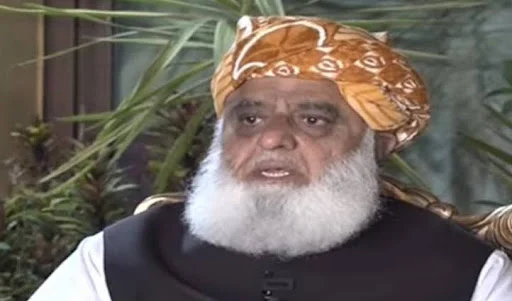Govt Seeks Time to Finalize Madrasa Bill as JUI-F's December 8 Deadline Looms
0
December 07, 2024
Govt Seeks Time to Finalize Madrasa Bill as JUI-F's December 8 Deadline Looms
Islamabad – The federal government finds itself under mounting pressure to address the madrasa reform bill as the Jamiat Ulema-e-Islam-Fazl (JUI-F) sets December 8 as the final deadline for its implementation. The bill, aimed at introducing a cohesive legal framework for madrasa education in Pakistan, remains a contentious issue, with key stakeholders calling for clarity and expedited action.
On Thursday, senior government officials revealed that significant legal challenges have delayed the bill’s finalization. A high-ranking member of the Ministry of Religious Affairs stated, “We are actively working on the legislation to ensure it meets constitutional requirements and respects the sensitivities of all stakeholders. However, more time is needed to give the bill a concrete legal shape.”
Background of the Madrasa Reform Bill
The madrasa reform bill aims to standardize religious education in Pakistan by integrating conventional education, regulating administrative functions, and ensuring financial transparency in madrasas across the country. Proponents believe these measures will help curb extremism, improve literacy rates, and open up employment opportunities for madrasa graduates.
However, the initiative has faced resistance from religious parties, particularly the JUI-F, which argues that the bill undermines religious autonomy and imposes unnecessary restrictions on Islamic seminaries. The party has been vocal in its opposition, staging rallies and press conferences to demand the bill's withdrawal or significant amendments.
JUI-F chief Maulana Fazlur Rehman, addressing a gathering in Islamabad last week, said, “We cannot allow the state to interfere in the functioning of madrasas. These institutions are the backbone of our religious identity, and any attempt to regulate them without our input will be resisted.”
Government's Response
The government, while acknowledging the JUI-F’s concerns, insists that the bill is crucial for modernizing religious education and ensuring accountability. During a recent cabinet meeting, Prime Minister’s Special Assistant on Religious Harmony emphasized the importance of a balanced approach. “We are not against religious education. Our aim is to uplift madrasas by equipping their students with the tools needed to thrive in today’s world,” he stated.
In a bid to placate opposition, the government has initiated dialogue with madrasa boards and religious scholars. A series of consultations have been held over the past month, with officials promising to incorporate suggestions from religious leaders. However, these efforts have yet to yield a consensus.
JUI-F's December 8 Deadline
JUI-F has warned the government of nationwide protests if the bill is not finalized by December 8. Party representatives have hinted at the possibility of joining forces with other opposition groups to amplify their demands.
“We have been patient, but the government’s delay tactics will not be tolerated anymore,” said a JUI-F spokesperson. “If our demands are not met, we will take to the streets and make our voices heard.”
Political analysts believe the deadline poses a significant challenge for the government, which is already grappling with economic instability and public discontent. “The JUI-F’s deadline is a litmus test for the government’s ability to balance reform with religious sensitivities,” said political commentator Dr. Hassan Ali. “Failure to address the issue could lead to political unrest and weaken the government’s standing.”
Legal and Political Implications
Experts highlight that any legislation affecting madrasas must navigate a complex web of constitutional provisions, religious sentiments, and political dynamics. The bill’s delay underscores the difficulties in achieving this balance.
“Madrasas play a critical role in Pakistan’s education system, particularly in rural areas,” said legal expert Barrister Ayesha Khan. “The government must ensure that any reforms respect constitutional freedoms while addressing legitimate concerns about oversight and accountability.”
The Road Ahead
As the December 8 deadline approaches, the government faces an uphill battle to finalize the madrasa reform bill and avoid potential confrontation with the JUI-F. With opposition parties closely watching developments, the outcome of this issue could have far-reaching implications for the political landscape.
Tags









